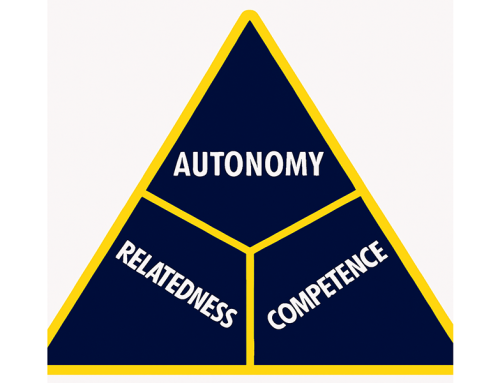It takes 21 days to form a new habit right? Everyone knows that. Well, hold on a minute – recent research suggests that this isn’t quite accurate. Can a simple habit be formed in 21 days? Certainly. But if you look at the psychology research that was recently done to answer this specific question in “real world” situations, you see it may take quite a bit longer.
Where did the 21 days to form a habit rule come from?
 Why do so many people say it takes just 21 days if that’s not the case? Well, it’s an easy mistake to make. Most Burn the Fat Blog readers have probably repeated the 21-day rule at one time in their life. I’ve done it. I mentioned “21 days to a new habit” in some of my older articles.
Why do so many people say it takes just 21 days if that’s not the case? Well, it’s an easy mistake to make. Most Burn the Fat Blog readers have probably repeated the 21-day rule at one time in their life. I’ve done it. I mentioned “21 days to a new habit” in some of my older articles.
I think the big reason is because major authority figures in personal development – including top motivational speakers – have been saying this for decades. After hearing it from our success mentors, rather than fact-checking, we just accepted it and started passing along the idea to others.
Ok then, why did these self-help authorities say 21 days? I don’t know if anyone knows for sure where it all started, but many people attribute it to Dr. Maxwell Maltz. In the 1960’s, Maltz wrote an excellent book about self-image psychology called Psycho Cybernetics. It sold tens of millions of copies, still sells today, and many of the ideas in that book have stood the test of time and are still useful today.
Some authorities however, may have misinterpreted something Maltz said. Dr. Maltz was a plastic surgeon and he noticed that after surgery, the patients didn’t adjust to their new look right away. They may have had a new face, but didn’t act like a new person yet. He wrote that it appears self-image doesn’t “gel” for 21 days. He also noticed that phantom limb pain after amputation could persist for 21 days. This is why some speculate that this could be the original source of the 21 days to a new habit idea.
Fast forward into the 1990’s and I recall seeing the 21 days idea reinforced again. Around that time, books on neuroscience started being published in droves, often written for the layperson, not just academics. As new brain imaging technologies started emerging, scientists were able to see the brain working, leading to major breakthroughs in neurology and psychology.
One of these breakthroughs was the discovery of neuroplasticity –the way the brain can continue to change throughout life, and new neural connections can be formed and strengthened. Some of this newer research was used in discussions about habit formation, and it appeared to once again, support the old 21 days to form and strengthen a habit concept.
How long does it really take to make a habit: What the newest research says
Wherever the 21 day idea came from isn’t that important. What’s most helpful for all of us is this:
1. Learn the best ways to form new health and fitness habits
2. Get some idea of how long it might take so we can set our expectations in a realistic way and we don’t beat ourselves up if it takes longer than we thought.
We’ll come back to the question of how to form habits in future posts, and for now stick to the question of how long does it take. It turns out, some well-designed psychology research has given us new answers.
The study on how long habits take to form took place at the Health Behavior Research Center at University College in London. It was called, “How are habits formed: Modelling habit formation in the real world,” and it was published in the European Journal of Social Psychology.
The researchers recruited 96 volunteers and had each subject choose an eating, drinking or activity behavior to carry out in the same context (for example, after breakfast). Then they reported whether they carried out the behavior. What the researchers discovered was interesting:
The habit didn’t keep getting stronger indefinitely, it peaked and plateaud after a certain amount of time. The time it took participants to reach maximum habit strength ranged from 18 to 254 days! This indicated that a habit could in fact be formed in 21 days, but usually took much longer and there was great variation between individuals in how long it took.
The study said that how long it takes also depends on the type of habit. A simple behavior like “Drink one small glass of water when you get up every morning” might easily be turned to habit in 21 days. A more difficult one like go to the gym every morning at 6 am for an hour of weights and cardio might take longer to become a habit.
There’s also the issue of whether there is an old deeply entrenched habit that we’re trying to “overwrite” with the new one. Breaking old bad habits and forming new ones from scratch are two different conversations.
18 to 254 days – that’s a pretty big range. So with information that general, how are we supposed to set our expectations? Well, there’s more…
The researchers said that the average time to develop a habit was 66 days!
This would imply that the message that’s been passed on for years, “It takes 21 days to form a habit,” is more accurately stated, “It takes a minimum of 21 days to form a habit, usually three times that long, and sometimes even longer.”
Other interesting findings in the habit research
How long it takes to form a habit wasn’t the only eye-opening finding in this study. Head researcher Phillippa Lally and her team also found these two other fascinating facts:
First, the repetitions of a behavior in the early phase can produce a larger increase in automation. This means that while you may not have established a new habit after only 21 days, those early weeks are a very important part of the process. It may take longer for the habit strength to reach its peak (where it plateaus), but if you get through that early phase, you are probably over the hump, so to speak.
Second, the study also found that missing one opportunity to perform the behavior did not materially affect the habit formation process.
This should be a big sigh of relief for many people, especially for perfectionists, because it’s all too common for someone to miss one workout or eat one meal that was off the plan, and throw in the towel right there because they felt they had blown the entire program.
You haven’t sabotaged the whole endeavor or erased everything you’ve already achieved with one slip. By being inconsistent, you’ve simply prolonged the time it will take to reach your goal or form a new habit. In other words, you have not failed until you quit.
If you miss once, just pick up right where you left off. A great mantra to remember after getting temporarily derailed is, “I’m just one meal away from being back on my plan” or, “I’m just one workout from being back on my plan.” What’s done is done, don’t dwell on it. If you fall off the wagon, just get right back on it, that’s all there is to it.
The 28-Day Burn the Fat Fitness Habits Challenge
For many years Burn the Fat, Feed the Muscle has been sponsoring body transformation challenges, where the focus was on achieving a fabulous transformation – demonstrated with before and after pictures.
Starting with just one event, we ultimately expanded to offering 5 challenges every year, and instead of making them all before and after photo competitions, we tried some things completely different:
We developed events including fitness challenges to encourage more walking (the Burn the Fat million step challenge and Mt Everest challenge), and challenges based on points (no pictures) to encourage positive self image (the Burn the Fat Love Your Body Challenge).
And now we have added a challenge to encourage the building of key health habits, also scored on points for carrying out healthy behaviors (the Burn the Fat 28-day Fitness habits challenge)
Just give me 28 days
You’ll notice we didn’t choose 21 days for our Fitness Habits Challenge. But if it really takes 66 days on average to reach the peak of habit formation, why only 28 days? Why not make a fitness habits challenge longer?
We considered that, but if the same research also says that the early repetitions are most important in habit formation, then you can look at entering this 28 day challenge as a spectacular way to plant the seeds and develop the roots of the healthy daily habits you need to get leaner, fitter and healthier.
Rest assured, something good is happening in those first 28 days. After 28 days of daily accountable action steps, there’s been enough repetition for simple habits to start to gel, and I believe that after 28 days, the seeds of even the toughest habits to form have been planted and the roots have taken.
Yes, after the Burn the Fat Fitness Habits challenge is over, you will have to keep watering those seeds, killing the bugs and pulling out weeds from time to time if you want to keep those habits growing and healthy, and see the full results begin to sprout.
Yet, that means you could think of our 28-day Burn the Fat Fitness Habits challenge as “the planting”… This challenge is also the catalyst for getting out of coach-potato mode (breaking inertia) and getting started into health and fitness mode.
If you want to plant the seeds of great fitness habits in your life starting right now, then I invite you – I challenge you – to take advantage of this opportunity and enter our fitness habits event.
Take the Burn the Fat Fitness Habits Challenge!
The challenge is free for Burn the Fat readers, members and subscribers!
We sponsor many events all year round, but the Fitness Habits challenge only happens once a year, at our Burn the Fat community website, Every fall.
[Click here to see when the next event is scheduled]
By holding this challenge in an amazing online community of like minded people, you’ll also get accountability and support that makes planting and growing new “habit seeds” infinitely easier than trying to do it on your own – and a lot more fun and social!
Here’s yet another reason to accept my challenge: Remember what that research study said about missing a single day not setting you back to zero, and that you can just get right back on track with the next meal; the next workout? Well we took that to heart…
Our contest is based on points not pictures (of before and after). You get points for every repetition of every positive behavior.
And guess what? You don’t need a perfect score to win. If you miss a point, no sweat. All we want you to do is KEEP GOING. JUST FINISH! If you simply finish the 28 days, even without a perfect score, you still get entered in our drawing for prizes.
[Click here to see when the next event is scheduled]
Hope to see you there!
Train hard, and expect success,
Tom Venuto, author of Burn the Fat, Feed the Muscle
PS. I’m doing a random book giveaway right here on Burn the Fat Blog – just leave a comment below for your chance to win. Note: This is time sensitive and will be expired once you see winners posted below.
I’m giving away 3 hardcover copies of Burn the Fat, Feed the Muscle, personally signed and shipped anywhere in the world. I’m also giving away 2 copies of the Burn the Fat, Feed the Muscle audiobook, either on downloadable MP3s or shipped to you on CD. The winners will be chosen at random for leaving a comment here on the blog below.
All you have to do to enter is leave a comment below about one of the following (or both): 1. Share your experience: tell us how long you think it takes for you to develop health and fitness habits. 2. Name the one habit you need to work on developing that you think would make the most dramatic difference in your health, physique or both.
Drop your comment below to enter, thanks for participating, and I hope to see you in the Burn The Fat Challenge!
Congratulations to our free book winners:
Hardcover book:
1. Ashanti Carrington. 2. Janet Liz. 3. Dave BB
Audio book:
1. Tayo. 2. Johanna
To collect your winnings, contact me at www.burnthefatblog.com/contact/ and write “I won” in the subject line. In the message, mention whether you won the book or audiobook (and if the latter whether you want the CD’s or MP3’s), and for books/CD’s please include your postal shipping address.

Tom Venuto is a natural bodybuilding and fat loss expert. He is also a recipe creator specializing in fat-burning, muscle-building cooking. Tom is a former competitive bodybuilder and today works as a full-time fitness coach, writer, blogger, and author. In his spare time, he is an avid outdoor enthusiast and backpacker. His book, Burn The Fat, Feed The Muscle is an international bestseller, first as an ebook and now as a hardcover and audiobook. The Body Fat Solution, Tom’s book about emotional eating and long-term weight maintenance, was an Oprah Magazine and Men’s Fitness Magazine pick. Tom is also the founder of Burn The Fat Inner Circle – a fitness support community with over 52,000 members worldwide since 2006. Click here for membership details






Thanks for sharing your knowledge with the world Tom. It usually takes me about 6-8 weeks to develop fitness and health related habits. The one habit I need to work on developing right now that will make the most dramatic difference to my health and physique is mastering my subconscious mind and being more disciplined as it relates to my training and meals.
I have done this before as far as habits and proven to myself its a solid 30 days to make it part of my everyday life. I have found i see results kick in after 2 weeks and things I need to have as great habits start to take hold or remind me at about 2- 3 weeks but that fourth week its part of my lifestyle.the most dramatic habit I’m working on now is not complaining!! Not complaining about health, nuitriton, lifestyle, and just making it happen. Im changing Should have (which I view as a negative phrase) to could have. I could have eaten the apple not the chips so next time don’t complain or dwell eat the apple. Use could have as a positive motivator.
1.) since my days in university i always did the 30 days rule or 100 hours rule to build new habits e.g. learning spanish, martial arts and a few years back reducing my belly fat by doing dumbell workouts only.
2.) The major habit (actually it was a bad habit) was to reduce the amount of junk foods and sodas that i was always consuming when i am at work… when i was consuming too many calories from pizza and pepsi every afternoon, it was very difficult to lose my belly fat.
I believe when it comes to fitness it takes way longer to establish a routine. I would even go as far as to say, it is a life long “struggle”. One minute you are on a roll and doing awesome, the next minute you have a hard time motivating yourself. It is easy to take off a day, then two, then a week and boom: back to feeling sluggish and fat again.
Especially with exercise, that usually is not really pleasant (muscle burn, sweating, spiked heart rate) it might never get easy and I think it is dangerous to tell people it takes 21 days to establish a habit. Then when it doesn’t get easier, people think there is something wrong with them and give up. Just like it is dangerous to say that people can loose 1-2lbs per week! That is such an unrealistic expectation unless you are grossly overweight. But people think it gets easier, because that’s what you read in those “magazines”
I love all your challenges. They come at the right time to keep me focused and motivated.
Thanks Bonita! We love to run the challenges!
I believe it takes me at least a month to form a consistent fitness habit and that seeing results is key to reinforcing the habit. The dramatic habit I am working on is eating more consciously – only when I am truly hungry- and stopping when I feel comfortably full. Thank you for your informative and encouraging posts, Tom!!
The one habit that continues to elude me, since I am not really a morning person, is to do some kind of exercise in the morning rather than waiting until after work. In the few times I’ve managed to do this, I’ve noticed that I’ve felt better and more alert throughout the day.
ave been weight training in a gym alone, I found myself gradually falling off after a few months, only to pick it up again later. But with a partner or personal trainer I stick to my program, and even when they can’t be there I still workout. My struggle right now is with diet. I really need to find the will power to not grab what,s convenient, healthy or not, when I am low on energy and need sustenance.
For me I have been exercising and eating healthy for years partially, I seem to always quit and go back to being lazy and eating like crap.
I have to believe its never too late to change. I quit smoking but occasionally I do smoke still if I’ve had a drink. So I don’t drink very often and if I do I try and be around people that don’t smoke.
I like to exercise I really do I feel better more positive look great.
For me not stopping would change my world.
I need to ‘consistently’ write my specific goal for each day. I get started and then an event occurs (out of town for a trip) and I am off task. Then I need to restart!!!
2. Name the one habit you need to work on developing that you think would make the most dramatic difference in your health, physique or both.
I couldn´t agree more with you Tom, fitness habits usually take up longer than 21 days to develop. However, I have noticed that whenever I want to develop a new habit motivation as explained un chapter 1 of BFFM Book, is the key to success. I´ve also found that concentrating in the possitive inmmediate effects of each new habit is totally helpfull. For example, It has always been painfully difficult to wake up from bed, anytime, any day… so when I first started working out early in the morning (5:30am), after my shower and on my way to work, I would concentrate on the possitive immediate effect such as wellness, that feeling of happinness after working insanely hard… that would motivate me and still motivates me to wake up as soon as the alarm goes off. I look forward into that post-work-out “wellbeing feeling”. After 14 years it is still difficult to get up from bed, but I just can´t break the habit and skip morning workouts, I need my morning endorphins in order to start the day at its best.
I think the habit I need to work the most on is about planning cheat meals. Whenever I plan my cheat meals it is easy to stick on my plan and control caloric intake, but when I miss this little detail I end up eating anything and everything on weekends.
I´ve made great progress since I first started the BFFM Program, however I still have som stubborn fat I really want to get rid off.
I started an exercise routine in July 2014 with a 30 day challenge. I lost about 6 pounds in that time. After that I tried to keep a routine but it was difficult since I had zero support and not much discipline. I lost 40 pounds and I just started pushing myself harder these passed few months so 18-254 days seems right.
Hello Tom and 28 day challengers!
The one habit that I KNOW will make the biggest, most important, most satisfying difference when developed will be staying the course of adding 2 HIIT sessions per week to accompany my weight training. I really don’t like cardio in any of it’s forms…well, minus kickboxing but that is another story. Consistency is key and I know it and it’s time to show it!
I think that a 21-28 day change is a good start on a micro level. In other words, eat more vegetables or cut out soda. However, I think it really takes about a year to really quash a bad habit, and for me, some bad habits have never truly gone away. I still tend to binge on junk food instead of controlling my portions.
The one habit change I think would make the greatest impact for me is to get more sleep. I understand the relationship lack of sleep has on my willpower, yet sleep deprivation keeps creeping in despite how much it affects me.
I think it takes about 2 weeks to get in the habit of doing or not doing what you are trying to accomplish. For it to become second nature at least 2 months . My biggest obstacle is mindless eating ,especially later in the day.
I need to stop binge eating at night. It’s been a recent habit that I have developed in an effort to rid myself of a few extra pounds. I diet great during the day, then at night I have a “treat” (e.g. toast with butter) with dinner, then that “treat” spirals to 5 toasts with peanut butter, jam, ice cream, chips and banana nut bread, etc.
I love how you cover the basics of nutrition and build on them until everyone can eat like a body builder. My hardest habit is eating what’s right and not with the crowd. My husband gifted me with a huge ISO lunch bag. I remind myself that what goes in my body will show on my body. Eat what you need to look how you want. As to how many days it takes to develop the habit of meal prepping….A long time. Months.
hard but important habit: choosing healthy portions instead of mindlessly eating until the plate/bowl/bag is empty.
I actually think this probably takes way longer – all depends on how high is the person’s motivation – this is why your approach is so complete, justified and…successful in helping people build up their fitness levels. I have kind of given up on this because (again, the excuse goes to say that) it’s a bad time for me. But reading this kind of brought to my attention that, if I want to get better/fitter, I should start somewhere… and sometime soon. I don’t need to be reminded that I feel everyday I don’t exercise or do something active, is a wasted day… Thank you for giving me another opportunity to take action.
Keep after it Georgeta. it may take a while before it sticks, but if keep on keeping on you WILL get where you want to go. Always start again and NEVER give up
1. I think a lot depends on the individual. If the want and will are there, then the results will be there. I exercise out of habit because my parents insisted that we spend an hour out of doors when we were very young. Intensity, though, is something that has gone up and down (and my weight/body fat percentage has shown it). I eat leafy greens because it’s healthy, but I will skip it if I think I can get away with it… This list is endless. ;)
2. What I’m working on now is writing my goals in the morning when I wake up and then again before I go to sleep at night.
Write your goals morning and night… that’s worth making a habit! It pays…
It took me 10 years to realize that the only way I’m going to loose weight was by doing it right, which among other things also meant forming fitness habits and challenge myself. I achieved my goals and never stopped eating right or excerising regularly. It’s been 10 years now. Thank you for all the info you share with us, Tom.
I’m looking forward to embarking on this challenge with you. I’ve changed habits like quit smoking, quit eating red meat, and it took persistence and commitment. I didn’t even really have support other than my own. I’ve worked out over the years, even with trainers, but I really want it to be a full part of my life. I welcome the challenge and the support of the community.
Hi, for me it definitely takes more time, especially when replacing a bad habit.
As I reflect on what new habit or change would have the greatest impact on my health, there are many things that need improvement. I am excercising regularly, drinking enough water, etc. I definitely need to further clean up my eating habits, I am slowly making progress there, although depending on my moods I also frequently regress.
However, what would have the most impact I think is sitting less. I have a desk job, like so many of us, sitting all day long. I work from home, so no excuses to get up to go to meetings, see colleagues, got to the printer or cafeteria etc.
I have recently installed an app that reminds me every 30 min to get up, walk around and stretch a little. Together with my fitbit tracking I am gradually increasing my daily steps and decreasing my sitting time.Even if it is just walking around our dining room. We’re also getting a dog in a couple of months, that will also force me to get out more often.
I think it takes about a month of repetition before it is a habit and then it is a continual tweaking and fine turning until it becomes part of your lifestyle.
My goal is to follow my plan consistently
Tom, Just want to let you know that I appreciate reading your blogs. I’m not much into exercise and fitness as much as awareness about needing and wanting to keep informed about good ideas on how to keep in shape. I am self employed, doing Handyman work. I do various jobs that require me to be on the move and that is where I get most of my exercise. Lifting, bending, walking, twisting and turning. I am 51 now and I have had problems with, as my mom would say Arthur and his five brothers, joint pain and inflamed joints, feet, knees, hips, back, hands, shoulders. They come and go sometimes from over exertion sometime from eating habits. So I try to be careful as I do need to work more than I need to workout or play. I have 3 grand children that I get to run and play with short of running very far, lol. Over the years I have set myself into getting up on a regular basis usually at or around the same time no matter if I had a job to go to or not, a push to stay active during the times that work was slow. I wasn’t going to be over whelmed by it and succumb to boredom and depression even if this was to work out because I believe in movement of the body to keep my spirit, mind, and body functioning. I don’t know how long days, months, years this strategy took but it does keep me in check when putting on clothes in the morning of walking by a mirror or storefront. Some need of improvement as the years go by. Thanks for your time have a great day!
It takes me from a month to six weeks to develop a health and fitness habit. You are right that it’s important to get back on track soon after missing a workout or eating an unhealthy meal. If I don’t, I usually revert to my old ways after about two weeks.
I need to focus and be consistent. By changing those habits, I will change my body.
Thank you for the great article Tom.
1. It normally takes me about a month to form a fitness-habit.
2. The one habit that I need to work on developing that I think would make the most dramatic difference in my physique is to do cardio first thing in the morning, before work, on an empty stomach. In fact, I have already started with this new habit about 2 weeks ago. I was inspired to do this by a very excellent article that Tom wrote on this subject (Cardio Timing: The Secret To Burning Fat Up To 300% Faster). Following is an excerpt from that article that I would like to share as it very relevant to the article above about habits: “I’m on my Stairmaster for 45 minutes every morning at the crack of dawn without fail. Sure it’s a challenge at first, but you know what? After a few short weeks, It’s no longer a chore and I’m “in the groove” – and you will be too. Just try it. Make a commitment to yourself to do it for just 21 days. Once those 21 days have gone by, you’ll already be leaner and you’ll be on your way to making morning workouts a habit that’s as natural as brushing your teeth or taking a shower. Once you start getting used to feeling that buzz, you’ll become “positively addicted” to it. The more you do it, the more you’ll want to do it. Before you know it, early morning cardio will your new habit; you’ll be leaner,
your metabolism will be faster and you’ll feel fantastic all day long.”
I’ve used your trading program in the past with excellent results… I have not been able to “stick” with it over the long haul. I’m hoping the “Challenge” will motivate me to go all the way.
Thanks for your help,
Joe
Very interesting article. This will bring a lot of comfort to people especially me who being a perfectionist does exactly what you described and often quit. Then I usually have to have all my ducks in a row to start again and continue to strive for that magical 21day point. Because of this it has taken me a decade (how time flies when you are being kept busy in a viscous cycle) to break any kind of health and fitness goals. But when I lose momentum aka take a break for 1-2weeks, I find I slip very easily back into old habits and then the cycle begins again. I am curious about your habits challenge and what will be different about your approach to habit forming. Thanks for the thought provoking information!
The University College London in a research found it takes about 66 days to form a new habit. So in theory if you make it to day 67 then you should have set that foundation solid for whatever change you are trying to make. What it really comes down to is making the decision to make a change for yourself to better your life. You can’t do it for anyone else but yourself. We all battle the 3 C’s of life, choices-chances-change. You have to be ready to make the choice for your health, take the chance when the opportunity presents itself, so you can make the desired change in your life! One day at a time until it becomes habit…
I think the one habit I would like to develop is to not make sacrifices for what is good for me; for example, don’t give up my workout time to do something else that is important but can wait.
I always thought it really just does only take 21 days to form a habit…but I think the secret to forming a habit is discipline. Which is extremely hard to be on top of. In the end you are your own disciplinarian which is perhaps why, as mentioned, it takes longer! The hardest habit to change I think for most people not just myself is getting over always expecting instant results and getting it perfect all the time every time. A total mindset thing!